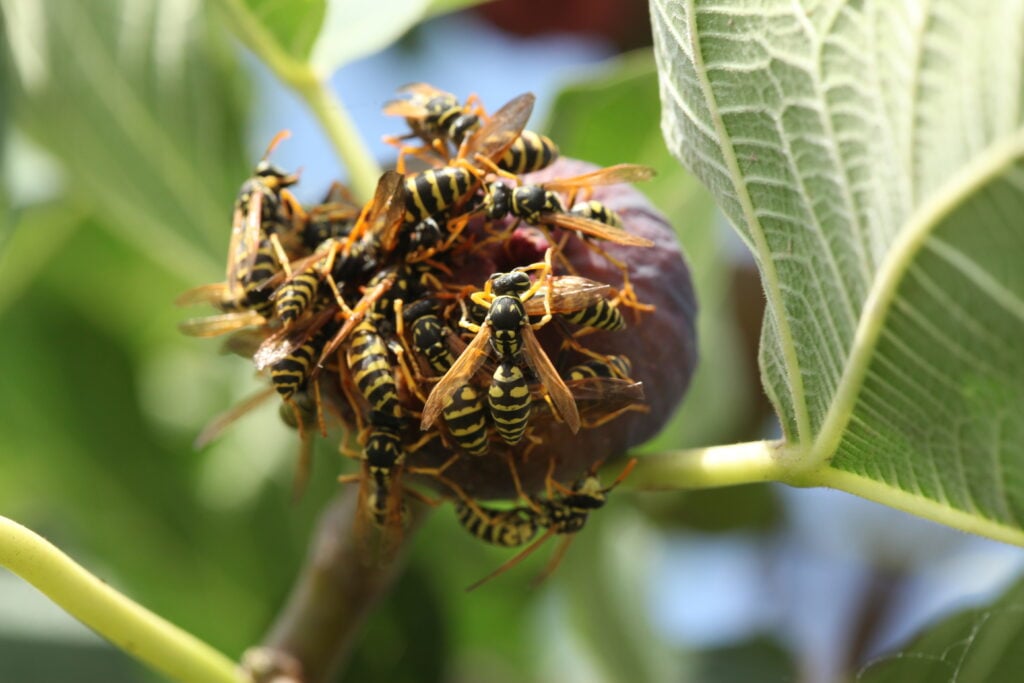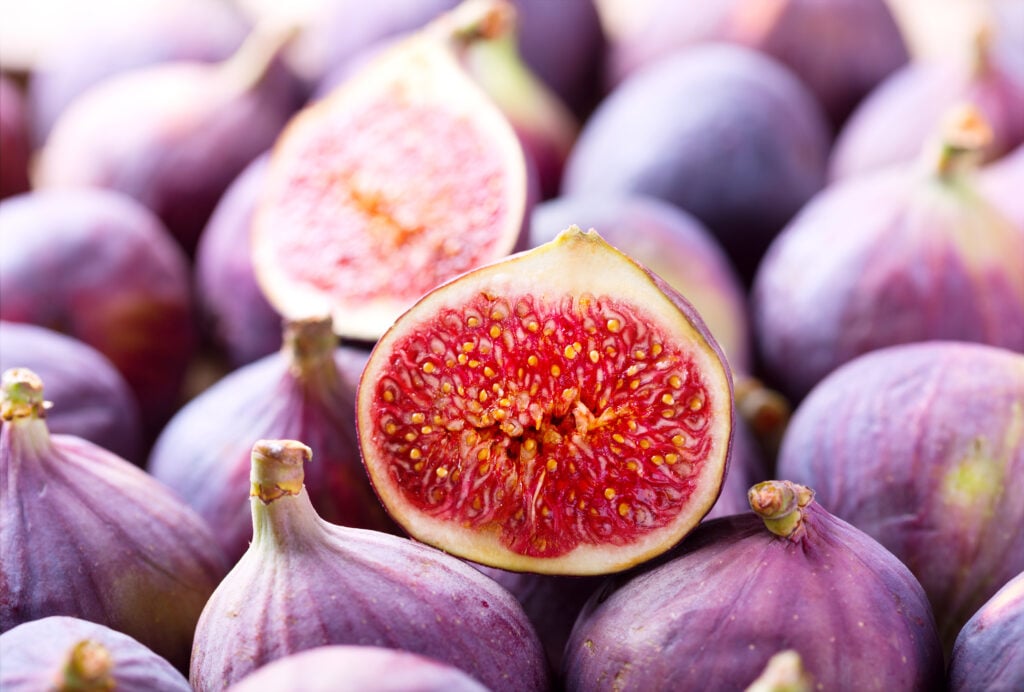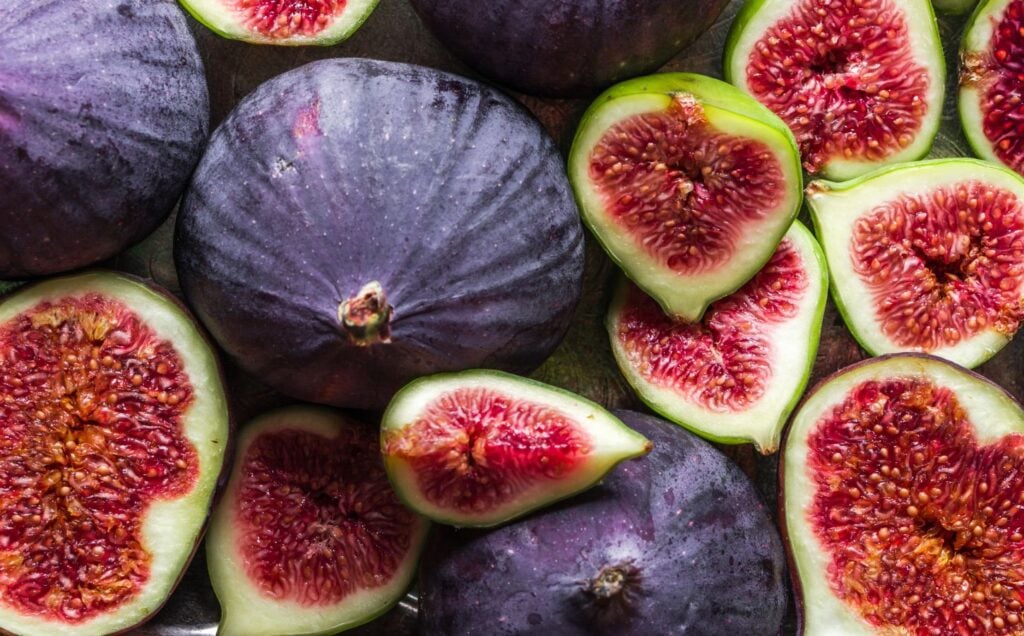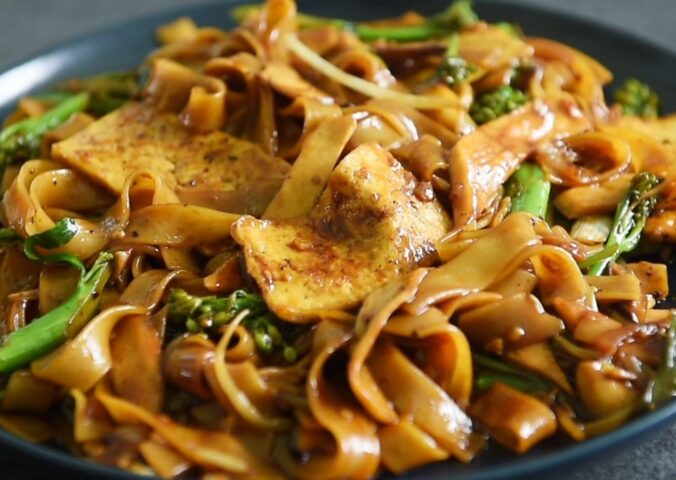Over the last few years, rumors have circulated that figs aren’t vegan-friendly due to the fact that they require a wasp to die in the pollination process. It’s led many people to believe that the fruit isn’t compatible with a plant-based diet. But are figs vegan? Or do they actually contain wasps?
Figs are a hugely popular food all over the world. They’re eaten in salads or desserts, or just as a snack on their own. Many people may be shocked, therefore, to learn that they’re often thought of as unsuitable for those on plant-based – and even vegetarian – diets.
The rise of veganism has also seen an increase in rumors and misinformation about the lifestyle. Many people attempt to discredit the movement by claiming that a host of fruits and vegetables – including avocados – are products of animal cruelty and therefore not vegan. Many people argue, therefore, that vegans are therefore hypocrites for eating just about anything.
While it’s true that some vegan foods may involve animals in some way, that doesn’t necessarily mean they aren’t vegan. Here’s your need-to-know on the truth about figs.
Jump to section:
- What is a fig? Origins of the fruit
- Do figs really contain wasps?
- Are figs vegan?
- Do all figs have fig wasps inside them?
- Where can you buy wasp-free figs?
- What figs don’t require wasp pollination?
- What are the health benefits of figs?
- Are any other fruits unsuitable for vegans?
What is a fig? Origins of the fruit
Figs are well-known for their distinct, pear-like shape and succulent texture that varies from chewy to smooth, depending on the variety and ripeness. Figs come in a range of colors, from green to purple and even golden. Inside, they contain numerous small seeds, which add to their unique texture and nutty flavor. Figs can be eaten fresh or dried and are often used in cooking and baking, offering a natural sweetness and richness to various dishes.
The fig tree is native to the Middle East and western Asia, and it’s been cultivated since ancient times. Its cultivation spread to the Mediterranean region, a climate ideal for fig growth, becoming a staple in the diet of various ancient civilizations, including the Egyptians, Greeks, and Romans. Today, figs are grown in warm, temperate climates around the world, with major producers including Turkey, Egypt, Greece, and the United States, particularly California. Figs thrive in areas with long, hot summers and cool, wet winters, making Mediterranean climates particularly suitable.
Do figs really contain wasps?

Some types of figs are pollinated by “fig wasps” who enter and lay their eggs inside them. These wasps and fig trees rely on each other to reproduce, with scientists believing they evolved alongside each other. The wasp pollinates the fig tree, and the tree in turn pollinates the wasp by enabling them to lay their eggs inside it.
When entering the tree, the female wasp will often lose her wings in the process, meaning she is unable to get out. After laying her eggs, she will then die inside the fig. This leads many to believe that the figs we buy in the supermarket contain wasps, and are therefore unsuitable for vegans.
Are figs vegan?
While it’s true that some figs do involve wasps in their pollination, this does not mean they aren’t vegan. Around 92 billion land animals are killed for food each year, as well as an incomprehensible number of aquatic animals. The vast majority of these animals are raised in unnatural conditions in intensive farms, or fished from the ocean with vast fishing nets or lines. Veganism is a movement against this animal exploitation.
In contrast, wasp-fig pollination is a wholly natural process, and doesn’t involve human-led exploitation of animals, which veganism seeks to exclude.
The eggs that the female lays within the fig will exit while still larvae, meaning she is giving way to more life by dying. Both the fig and wasp have evolved that way, and the process is not comparable to unnatural farming practices.
The wasp will also be digested within the fig with an enzyme called ficin, which breaks down the bodies of the wasps into protein. This means there is no chance a human will unwittingly eat the corpse of the insect when biting into the fruit.
Do all figs have fig wasps inside them?

What’s more, figs typically eaten by humans mostly don’t involve wasp pollination at all. This means that there will likely have never been wasps or wasp eggs present inside them.
Modern cultivation practices often mean that the figs we typically eat from grocery stores are grown from varieties that do not need wasp pollination. This means that a typical packet of figs is unlikely to contain any traces of wasps.
Where can you buy wasp-free figs?
Figs can be purchased from various places including supermarkets, grocery stores, farmers’ markets, specialty food stores, online retailers, and health food stores. The availability of fresh figs is generally seasonal, peaking from late summer to early autumn, but dried figs are available year-round. When it comes to wasp pollination, the common figs found in most stores do not require it.
What figs don’t require wasp pollination?
The most common type of fig that does not require wasp pollination is the Ficus carica, particularly the common fig cultivar. These figs are known as “common figs” or “edible figs” and include several popular varieties:
- Common Fig (Ficus carica): This is the species most widely cultivated for edible figs, and it does not require wasp pollination. It produces “parthenocarpic” fruit, which means the fruit develops without the need for fertilization by pollen.
- Varieties of Ficus carica:
- Black Mission: Dark-skinned and sweet, this variety is very popular and does not need pollination by fig wasps.
- Brown Turkey: Another widely grown variety, known for its brownish-purple skin and sweet flavor.
- Calimyrna: While traditionally requiring pollination, there are now cultivars that are grown without the need for fig wasps.
- Kadota: With green skin and sweet flesh, Kadota is another self-pollinating variety.
The development of such self-pollinating varieties has been crucial for the commercial cultivation of figs, particularly in regions outside the native habitat of the fig wasp. These varieties allow for consistent and predictable fig production without relying on the presence of the fig wasp for pollination.
What are the health benefits of figs?
Figs are not only vegan-friendly, but also regarded as a nutritious fruit for any diet. Figs, both fresh and dried, are packed with a variety of nutrients that are thought to offer a number of health benefits. They are a good source of dietary fiber, which is beneficial for digestive health. The fiber in figs helps to promote regular bowel movements, prevent constipation, and is thought to contribute to a healthy gut microbiome. Figs also contain prebiotics, which nourish and support the beneficial bacteria in the gut.
In addition to fiber, figs are rich in vitamins and minerals, including vitamin B6, copper, manganese, potassium, and magnesium. These nutrients play a crucial role in various bodily functions, such as energy metabolism, nerve function, and the maintenance of bone health. Figs also have a low to moderate glycemic index, making them a good option for blood sugar management.
Are any other fruits unsuitable for vegans?
It’s extremely rare for fruits and vegetables to be unsuitable for vegans, despite ongoing rumours. The media has played a significant part in fueling speculation that certain fruits and vegetables aren’t vegan-friendly. On en episode of QI in 2018, host Sandi Toksvig told her guests that a number of foods – including avocados and butternut squash – weren’t suitable for those following a vegan lifestyle. This is due to the fact that they require migratory beekeeping as part of the production process.
Migratory beekeeping is the practice of moving beehives to different geographical locations to pollinate crops. The practice is used for a number of vegetables in the US. While there’s no denying that migratory beekeeping is an unnatural use of animals, it’s widely regarded that foods grown as a result of it are vegan-friendly. The Vegan Society defines veganism as the practice of avoiding animal use and exploitation “as much as possible and practicable.” It wouldn’t be practical for most vegans to avoid all indirect harm to animals, meaning these fruits and vegetables are considered fine to eat.






